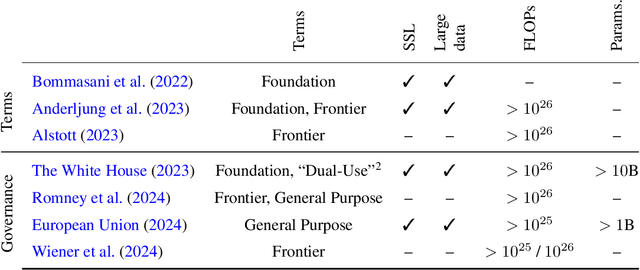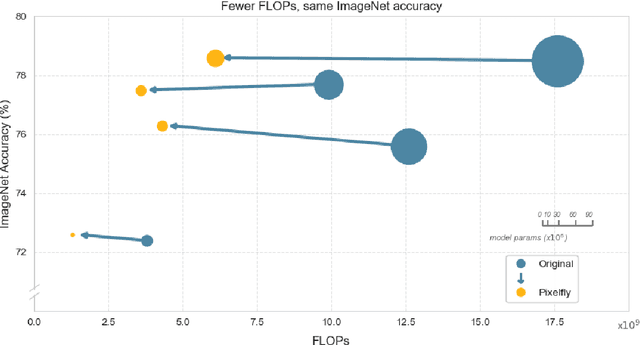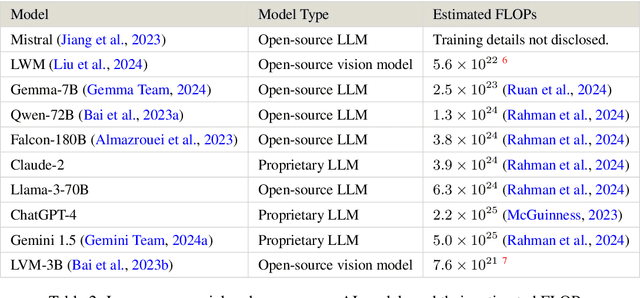Data-Centric AI Governance: Addressing the Limitations of Model-Focused Policies
Paper and Code
Sep 25, 2024



Current regulations on powerful AI capabilities are narrowly focused on "foundation" or "frontier" models. However, these terms are vague and inconsistently defined, leading to an unstable foundation for governance efforts. Critically, policy debates often fail to consider the data used with these models, despite the clear link between data and model performance. Even (relatively) "small" models that fall outside the typical definitions of foundation and frontier models can achieve equivalent outcomes when exposed to sufficiently specific datasets. In this work, we illustrate the importance of considering dataset size and content as essential factors in assessing the risks posed by models both today and in the future. More broadly, we emphasize the risk posed by over-regulating reactively and provide a path towards careful, quantitative evaluation of capabilities that can lead to a simplified regulatory environment.
 Add to Chrome
Add to Chrome Add to Firefox
Add to Firefox Add to Edge
Add to Edge